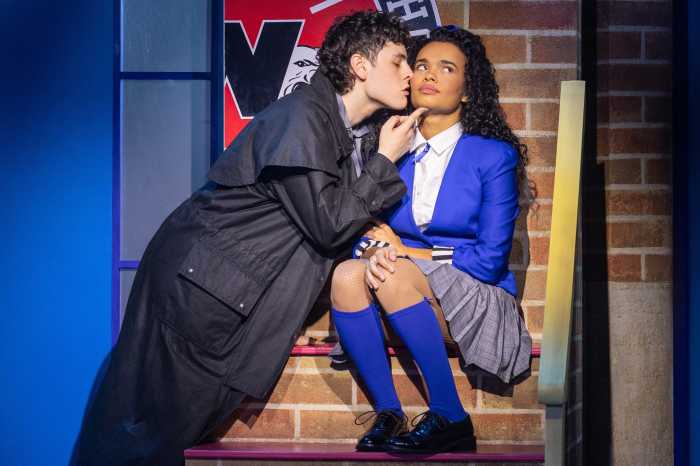
‘Once Upon a Time … in Hollywood’
Directed by Quentin Tarantino
Starring Leonardo DiCaprio, Brad Pitt, Margot Robbie
Rated R
Quentin Tarantino has spent his career building toward "Once Upon a Time … in Hollywood," a movie that amalgamates all of the passions and interests he has pursued over the course of nearly three decades behind the camera.
His movies always have been possessed with a love of the art form, above all — a sense of sheer joy in pursuing the intricacies of the craft. This is a film buff who happens to be prodigiously talented, exploring his favorite genres while honing a distinct style that radiates with the excitement of the work.
So it’s natural that he’s finally made a movie about the movies themselves, a vast Hollywood fairy tale epic set in 1969 during the very last days of the studio era, as Tinseltown and the nation seized onto a crumbling past in the face of a dark and uncertain future.
The picture has been billed as Tarantino’s film about the Manson Family, but while they are a key component to the larger narrative, it is far more ambitious than that.
The fictional protagonists are Rick Dalton (Leonardo DiCaprio), a TV cowboy whose glory days have long since receded into the distance. He knows it, too, and when he’s not wistfully bemoaning the state of things with his stunt double, driver and best friend Cliff Booth (Brad Pitt), he’s reduced to playing the sniveling villain in B movies.
They live next door to Sharon Tate (Margot Robbie) on Cielo Drive, navigating around the fringes of the upper tier of Hollywood life that she signifies in Tarantino’s world, and they spend their days in search of a path forward in a business that’s increasingly leaving them behind.
This is a movie infused with a love for this place and this world, as well as an encyclopedic knowledge of it. Tarantino relishes a montage of the sizzling, glittering neon signs that dot the Los Angeles cityscape. He spotlights institutions ranging from Hollywood’s Musso & Frank Grill to the Bruin Theatre in Westwood in major moments. Steve McQueen (Damian Lewis), Bruce Lee (Mike Moh) and other significant names factor into the story.
There are prolonged driving scenes, marked by sweeping shots of Burbank Boulevard and low angles of the Capitol Records building, and the soundtrack practically surveys the range of classic rock from the era, with appearances from Deep Purple, Paul Revere & the Raiders and many others.
DiCaprio and Pitt construct a friendship that’s both comic and touching; they know how to play the hyper-emotional actor and his muscular, taciturn stuntman both as broad archetypes and as distinct, engaging individuals beset by a sense of looming despair. They’re staring at a future predicated on the serious actors and movies of the dawning New Hollywood era that appears to have little use for them.
The essence of what Tarantino seeks to do here can be found in the way Robbie portrays Tate in a scene that is perhaps the most important in the movie. The Bruin Theatre, one of those single-screen palaces that dot the Los Angeles landscape and make the city such a cinematic paradise, is showing "The Wrecking Crew," a spy comedy in which she co-stars with Dean Martin.
She drops in and sits down to watch herself with an audience. When they laugh during one of her comic moments on-screen, she beams with happiness and pride. This, at the end of the day, is what it’s all about. Movie magic lives forever.


































